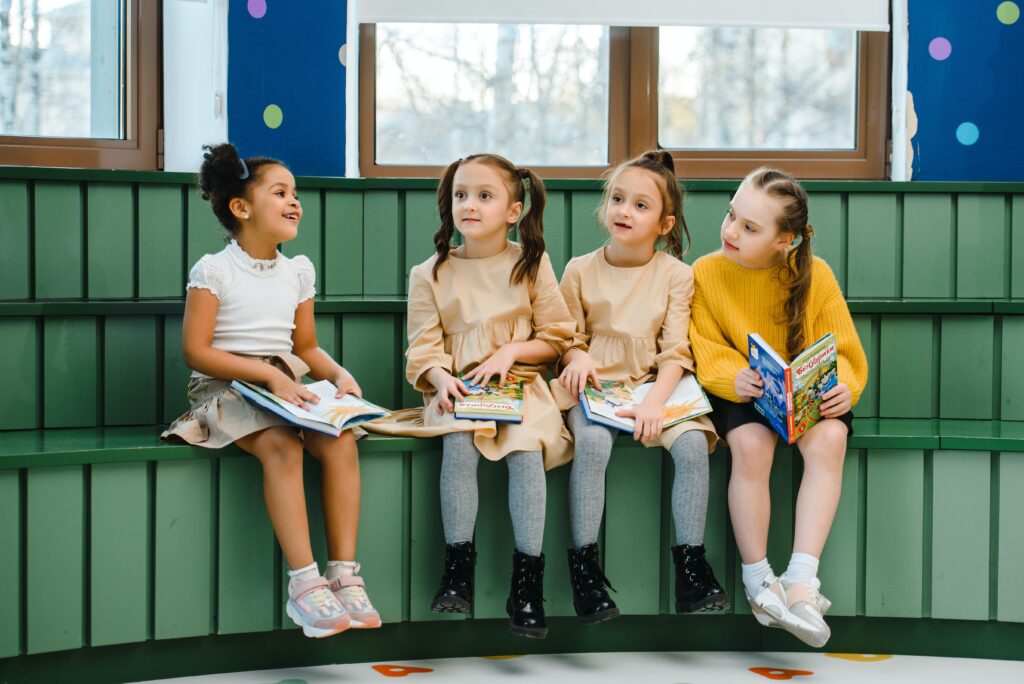Gifted children are talented in at least one area of life, such as academics, the arts, music, or sports.
These kids often have a natural talent for learning languages and can gain a lot from being bilingual.
On the other hand, bilingualism refers to the ability to communicate fluently in two or more languages. Supporting bilingualism in gifted children is critical because they face unique challenges and opportunities when these two characteristics combine.
The best motivation for learning a language, such as the desire to communicate needs at home, fit in at school, or play with friends, is necessary. To boost this motivation, we must make the second language as important as the first in everyday life. For a child to become truly bilingual, he or she needs to hear the same amount of each language.
Anyone who learned a language in school and then stopped speaking it after the final exam understands how important it is to use or lose it. This article will consider the advantages of bilingualism for gifted children.
How to Nurture Bilingualism in Children and The Challenges of Bilingualism for Gifted Children

How critical is supporting bilingualism In a gifted child?
Bilingualism, or the ability to speak and understand two languages, is a valuable asset that benefits gifted children in various ways. Bilingualism has numerous advantages for gifted children. Here are a few of the more notable ones:
Cognitive Adaptability
Bilingual people can better switch between tasks, adjust to new situations, and think creatively.
Bilingually gifted children are better able to think critically, solve complex problems, and generate new ideas.
Studies have shown that being bilingual makes your mind more flexible. This is especially important for gifted children who are often asked to think outside the box.
Enhanced Cultural Awareness
Bilingualism raises cultural awareness. Bilingual children can better understand and respect cultural differences because they know more about other cultures. This can make people more empathetic, tolerant, and accepting of others, useful in today’s diverse and globalized world.
Improved Communication Skills
Bilingualism improves communication abilities such as listening, speaking, reading, and writing. Such children have no limitations. Bilingually gifted children can communicate effectively with a broader range of people, including those from different cultural and linguistic backgrounds. This skill can be especially beneficial for gifted children involved in international collaborations or wanting to work in international fields. They adapt quickly to their new surroundings.
Enhanced Executive Function
Executive function is a way of thinking that helps people plan, concentrate, organize, and finish tasks. Researchers have found that bilingualism improves executive function, which is especially important for gifted children, who often have busy schedules and many tasks. Bilingually gifted children can better manage their time, prioritize tasks, and focus on their goals. They are capable of achieving success.
Read:https://abundanceandkiddies.com/narcissismreview-you-need-to-know/
Enhanced Educational and Career Prospects
Bilingualism allows gifted children to pursue various educational and career opportunities. Bilingually gifted children can study and work in different countries and have a competitive advantage in international business, diplomacy, and translation. Furthermore, bilingualism can lead to higher earnings because bilingual people are often in high demand in the job market. It can also ensure job security because there are few bilingual people.
Bilingualism is a valuable skill for gifted children.
It helps improve cognitive flexibility, cultural awareness, communication skills, executive function, and educational and career opportunities. Parents and teachers can help gifted children become bilingual by giving them access to bilingual resources, creating a supportive environment, looking for bilingual education programs, and connecting with the bilingual community. Parents and teachers can help gifted children reach their full potential by encouraging bilingualism.

How Can We Support Bilingualism in Gifted Children?
In supporting bilingualism in gifted children, Parents and teachers must plan and act in a certain way to help them become bilingual. Here are some indicators to get you started:
Begin early:
According to research, the earlier a child is exposed to a second language, the better. Ideally, children should be exposed to a second language before age six. Children naturally learn faster when they are young. For example, parents who travel to a different language-speaking country may need help learning the language of the new environment. Still, you notice your children speaking that language a few weeks after they arrive.
Make a welcoming environment:
Parents and educators should foster a welcoming and encouraging environment for bilingualism. Encourage children to use both languages and recognize their accomplishments in both. A supportive environment and resources will motivate the children to master both languages.
Make use of a variety of resources:
Introduce children to various resources in both languages, such as books, movies, music, and art. This can help children learn more about the cultures of the languages they are learning. Allowing them to interact with native language-speaking children will aid in their learning.
Find bilingual education programs:
Bilingual education programs can be an excellent way to encourage bilingualism in gifted children. Gifted children can learn a language in a structured way through these programs, which can also help them improve their language skills in a safe environment. Enroll your children in one of the bilingual education programs listed below.
Read: https://https://abundanceandkiddies.com/challenges-of-a-gifted-child-ultimate-review/
Get involved in the community:
Finally, parents and educators should make contact with the local bilingual community. This can allow children to practice their language skills with native speakers while also learning about the cultures associated with the languages they are learning. Getting the kids involved in their children’s clubs and other fun activities will help them learn the language very well.
Bilingualism and gifted children present both challenges and opportunities. Both parents and teachers can assist gifted children in developing the cognitive flexibility, cultural awareness, and communication skills they need to do well in a globalized world by encouraging them to learn more than one language.

What are the difficulties associated with bilingualism for gifted children?
While bilingualism has many advantages for gifted children, it can also present some difficulties. When supporting bilingualism for gifted children, here are some of the common difficulties one can face:
Overload of Language
Gifted children frequently have a wide range of interests and activities, and adding a second language can be daunting. Learning two languages simultaneously requires much mental effort and time, which can leave gifted children stressed and overwhelmed. Overburdening a gifted child with these languages can make him or her less productive academically and socially.
Confusion of Cultures
For gifted children, bilingualism can cause cultural confusion. They may need help to meet both the needs of their cultural identity and the needs of their peers and society. A gifted child, for example, who speaks Spanish at home and English at school, may find it difficult to fit in with both groups of peers and may feel torn between their cultural identities. This could have a bad effect on the child because it will be hard for them to understand both languages.
Language Dominance
Gifted bilingual children may face additional challenges due to language dominance. When one language is more dominant than the other, it can lead to confusion and conflict. For example, a gifted child who speaks French and English may be more comfortable in one language than the other, creating a language barrier with peers who speak the less dominant language. Certainly, there are times when a child excels in two or more languages, and this is where talent comes into play.
Read: https://abundanceandkiddies.com/the-types-of-giftedness-in-children-the-current-perspective/
Access to Resources Is Limited
Bilingually gifted children may have limited access to resources in both languages. Their school, for example, may lack resources in their second language, or their community may lack a strong bilingual community. This can limit their exposure to both cultures and languages, making it more difficult for them to develop language skills.
Appropriate resources should be available supporting bilingualism in gifted children learning these languages.
Difficulties Communicating
Bilingualism can also cause communication problems in gifted children. They might need help finding the right words in both languages, which could lead to confusion and miscommunication. A gifted child, for example, who is trying to explain a complex idea in their second language may struggle to find the right words, leading to frustration and miscommunication.
While bilingualism has many advantages for gifted children, it also has some drawbacks. Parents and teachers can help gifted children learn another language by creating a supportive environment, looking for bilingual education programs, and connecting with the bilingual community. Parents and teachers can help gifted children deal with these problems and do well in a globalized world by encouraging them to learn more than one language and giving them the resources and help they need.
Read more of our articles here:https://abundanceandkiddies.com/
Shop Children’s Kitchen Kits here
Shop Kishoo Children wear here
Miniclasix Children sweaters here
Children’s Bikes and Bicycles here